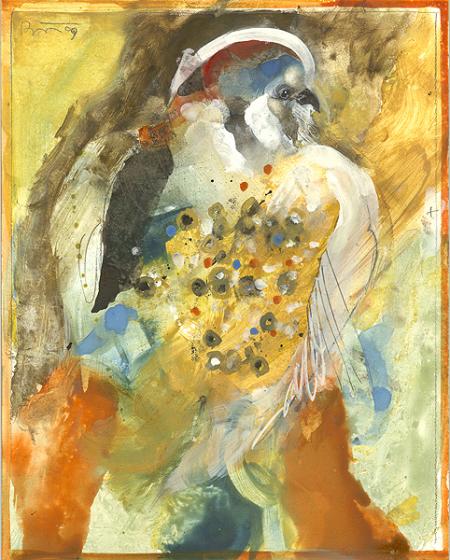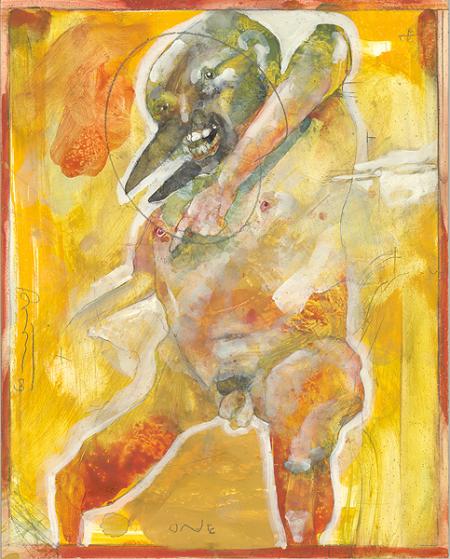
By LAURA GRIMES
Today my current first husband and I can legally drink. We’ve been married 21 years.
We can’t legally drink and celebrate together because I’m spending our special day with my mom. But it’s not the special days that make a marriage special. It’s the everyday little things. Like laughing and teasing. Like coffee together in the morning.
The first Christmas we spent together, my current first husband gave me a coffee maker. Sweet? I was pissed. But I gotta admit, that coffee maker was our loyal morning friend for 20 years, part of many a happy moment. Good memories are made of many a happy moment. Good marriages, too.
There’s one moment, though, that I will always hold dear.
***
My current first husband wrote a post recently and described a certain look in my eyes. Damn, but he beat me to it. Because little did he know that I have been working on a certain story that has just such a look, albeit a tad bit different and a shade bit farther … and on a certain somebody else. Actually, I’ve been tooling this story around in my head for many years. But a recent event swept through my brain like a tornado in Kansas and collected all the disparate thoughts, lifted them up, swirled them around and plunked them down again.
***
I met Rick Bartow a few weeks ago, and now I understand.
I understand a story I first started hearing years ago.
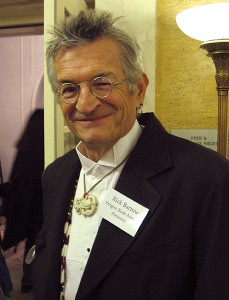 It was early 2002. Mr. Scatter and I and the large smelly boys – who were not so large and not so smelly back then – were driving several hours north to visit family. To visit my mom, in fact. The not-so-large not-so-smelly boys must have been blessedly quiet in the backseat for a long stretch of road. We’ll just chalk that up to divinity and not ask why.
It was early 2002. Mr. Scatter and I and the large smelly boys – who were not so large and not so smelly back then – were driving several hours north to visit family. To visit my mom, in fact. The not-so-large not-so-smelly boys must have been blessedly quiet in the backseat for a long stretch of road. We’ll just chalk that up to divinity and not ask why.
Mr. Scatter had recently visited Rick at his home and studio in Newport, Ore., for research to write a story. He had been typing away on it for a few days. But he was at loose ends. I could tell. Because he was talking about it incessantly, as much to figure out a throughway for the story as he was just plum excited.
He was trying to get his arms around a giant octopus and he hadn’t quite figured out how to land it.
***
After meeting Rick and seeing him perform, now I know why. Rick and two of his musician buddies did a show with Portland Taiko on July 2. Mr. Scatter is on the board of Portland Taiko, so even though I was looking forward to finally hearing Rick, I figured it would be an evening of smiling and shaking hands. I fretted about taking the right handbag.
It had been a blistering hot day and the event was taking place on the roof of the DeSoto Building in the Pearl, above Froelick Gallery. Frying came to mind. But by evening, the temperature had cooled to balmy, a slight breeze had kicked in and the sky was an uncanny even blue, deepening darker as the night wore on and lending a crisper backdrop for a half moon that lifted and slowly shifted through the show. It was magic.
Rick was even better. He was immediately open and generous, a magnetic guy who took a blues song and elevatored it down to deep dark basements faster than you can push a button. His songs were earthy and mystical and wrapped in rich, complex storytelling. He didn’t hold back.
What a gift. He talked of his past substance abuse, Vietnam, friends who have died, the beginnings of songs, the ends of songs. He wasn’t afraid of ugly. And he wasn’t afraid of sweet.
His stories unspooled for anyone lucky enough to have a seat. Friends. Strangers. He opened up for everyone. It was the gift he gave.
Afterward, Mr. Scatter and I chatted with him. I asked if he ever played at the Blues Festival, which was happening at the same time at Tom McCall Waterfront Park. He said no, he just can’t take the crowds. His nerves get to him.
I understand that, too. He seemingly wears all of his nerves on the outside. He takes in everything, absorbs it, feels it, and gives it back. For someone to perform like that, he must be perceptive to the slightest vibrations. And when you’re that sensitive, when all your pores are open to everything that comes in, crowds can be overwhelming. It’s too much all at once. There’s a lot of good in there, but the bad comes with it.
I want to say that Rick is a big man, but that doesn’t sound right. He’s a big spirit. At once gentle and rough.
That night the memory of that giant octopus came back to mind. I finally understood the size and the sheer natural story potential. Rick embodies a story. He lives it and he tells it, as honestly as he possibly can. How to capture that in all its enormity? How to face that with the same unwavering honesty? The octopus. With long, amorphous, moving, hard-to-wrestle arms, each with its own winding and compelling tale, what to follow when? And how?
***
When Mr. Scatter worked at a certain large daily newspaper, he usually wrote a story, filed it, and I wouldn’t have a clue what he was up to until I read it in the paper. Oh, so that’s the show you went to Saturday night!
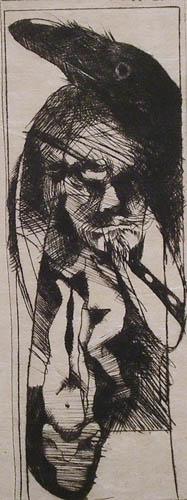 Sure, we often discussed things, and I knew his schedule and I knew what he was writing about, but the final story was often a mystery. But then there were times when a printout of a story would be left at home on the entryway table.
Sure, we often discussed things, and I knew his schedule and I knew what he was writing about, but the final story was often a mystery. But then there were times when a printout of a story would be left at home on the entryway table.
It would sit there quietly with the mail. Unannounced.
At first I thought they were there so he could give a story another read-through. Or check a quote with a book he had at home. Or for whatever reason. Occasionally that was the case.
I might say something like, “Is this that restaurant review?” and ask if I could read it.
Sometimes – often, actually they were letter perfect. Sometimes I’d spot a typo. Sometimes I’d ask questions or point to a confusing passage. Sometimes we would have long debates.
Slowly, though, I grew to recognize a pattern. I grew to pay attention when a story was quietly left on the table. They showed up more and more. I was supposed to pay attention. Sometimes I sensed they were stories he was particularly proud of, and I was touched he wanted to make sure I knew. More often than not, they were stories that held a small nagging doubt that he wanted to double-check, or stories that were hairier than most, that were more complicated and bigger and had a lot of reasons that needed to be carefully laid out and then all tied together.
***
On the last day Mr. Scatter worked for a certain large daily newspaper after 34 years, his close colleagues each read aloud an excerpt of one of his stories. I knew all the important ones through the many years, and I was impressed that with such an enormous body of work they didn’t miss a one. They curated his work almost exactly as I would have. Wow, I thought, they really paid attention and know his stuff — all his very best career highlights. The story about Rick Bartow was among those. How could it not be?
***
As we drove with the not-so-large not-so-smelly boys those many years ago, Mr. Scatter was telling me all about Rick, his trip and what he saw. He was telling me angle after angle after angle. He was telling me how there were so many directions, and he described each one of them. I asked questions. We discussed it some. But mostly he just talked and talked. Hours of road.
He wasn’t sure how to get his arms around it all.
That wasn’t like him. He usually knew where he wanted a story to go and how to get it there. But I could tell this was different. It was big and loose and sprawling. He had pieces. But no cement. He had typed out a few pages already, but it didn’t feel right. He was after something bigger.
***
Late that night the rest of the house was quiet and the two of us sat in the living room. He was on the fold-out couch. I was a few feet away in a chair. We each held a glass of a clear amber liquid.
I had the beginnings of his typed story in my hand. But before I could read it, he chatted more. Eventually I knew all the pieces:
- Rick was half Native American and half Caucasian, and he straddled both.
- His artwork was steeped in Native American myth but not completely.
- His Native American father died when he was young, and his uncle taught him Native American ways.
- He was a Vietnam veteran.
- When he returned he had a drinking problem.
- He got clean.
- He was married to a woman he very much loved and they had a son.
- She died.
- He grieved.
- Another woman helped to heal him and they married.
- He was a visual artist, a blues musician, and many other things.
- He had close ties with Native American artists.
- He had close ties with many non-Native people.
- He had relationships with people of indigenous cultures in other parts of the world.
- He painted with a terrific energy and to pounding music.
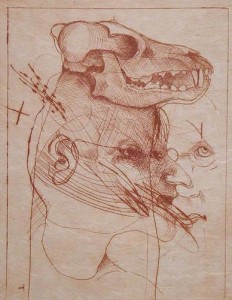 Finally the room got quiet and I read the few pages. When I was done I started at the beginning again. It was good. But something was missing.
Finally the room got quiet and I read the few pages. When I was done I started at the beginning again. It was good. But something was missing.
I asked a few more questions. I read over the beginning again. I took a long, slow breath and said, “This is quiet.”
I told him he had described to me all this incredible energy and an amazing dichotomy, but I didn’t feel that in the beginning of the story.
I flipped the page, ran my finger down several paragraphs and pointed. It described Rick painting. I said this has energy. The story needs to start in the middle of the action. This is your lead.
He said what about all the backstory? What about the structure?
I said tell me what’s going on here. Tell me about the paintings. He added a few more pieces to the Rick story:
- His paintings that he worked on were fascinating – a coyote, a hawk and a self-portrait.
- And there was something else, too: a caul. Common in Native American lore, a caul is one eye that’s … different. It’s blank but it sees. It’s opaque, but it sees into things. It has many sides. Sometimes for good, and sometimes not.
Both of us sat thinking quietly for a bit. Then I said, “What if the paintings were your structure?”
He looked at me puzzled.
I was warming up. “What if you used each painting as a springboard for all those other directions in the story? So you start with this great energy, which is immediate and current, then use it to go back in time and weave the other threads.”
Then we were talking back and forth.
“They could be stepping stones.”
“Like he’s painting his own stories.”
“His paintings unfold in real time …”
“… and incorporate all the other story pieces.”
“So you could start with coyote …”
“… and then hawk …”
“… and then …”
He finished it. He was the only one talking, feeling the words. We both saw it coming, and couldn’t believe how absolutely perfect it was. But I let him go. Knowing he had it.
“… and then the …”
His look shifted. There it was.
“… self-portrait.”
He whispered it. At that moment his eyes went inward and were gone. I’ll never forget that look in his eyes. We were sitting only a few feet apart, sharing our clear amber liquid, but he was somewhere very far away. Chasing after a story. Turning over the possibilities. Writing it in his head. He couldn’t wait to start typing. He wanted to be somewhere else.
In the end, the final story was nothing that we talked about and yet it was everything. How it started and how it spun out were entirely new directions and entirely his own.
No matter where the story went, I loved those eyes at that moment. He wasn’t with me one bit. And I loved him all the more for it.
***
Happy Anniversary. I’m sorry I’m not there. It’s the little moments, though, that go a long way.
********************
Afterstory: Weird. As I typed the end of the story I could vividly hear the dialogue, some that had eluded me just a few nights ago. I wondered about that. I have worked on this story on and off for a few weeks. Of course it first started running in my head years ago, but only recently did I start typing it.
First, after we heard Rick perform. Then I scratched at it a little more. Then I realized I would be gone for our anniversary so I worked on it in earnest to finish it in time and couldn’t believe how well that worked into it. I kept adding to the beginning of it, layer by layer. The end of it, however, seemed farther and farther away.
And to think, in the end, I hadn’t planned to be where I am, right now. I’m at my mom’s. Only a few days ago did I know I would be here on this night. And I sat here for a few hours polishing the whole story, feeling its rhythms and then finishing the very end of it. I honestly thought, “Why can I hear this so well now?” It’s late at night and everyone’s asleep. I typed the last words. And right then it dawned on me. This is where we were sitting. This is where it all began.
Stories have a way of doing that, don’t they?
— Laura Grimes
********
Picture credits: All pictures courtesy FROELICK GALLERY.
All art by Rick Bartow. From top:
Crow’s Delusion (He Who Must Be Obeyed)
Rick Bartow
What Raven Knows
Coyote and Janssen and Me
Old Kestrel
